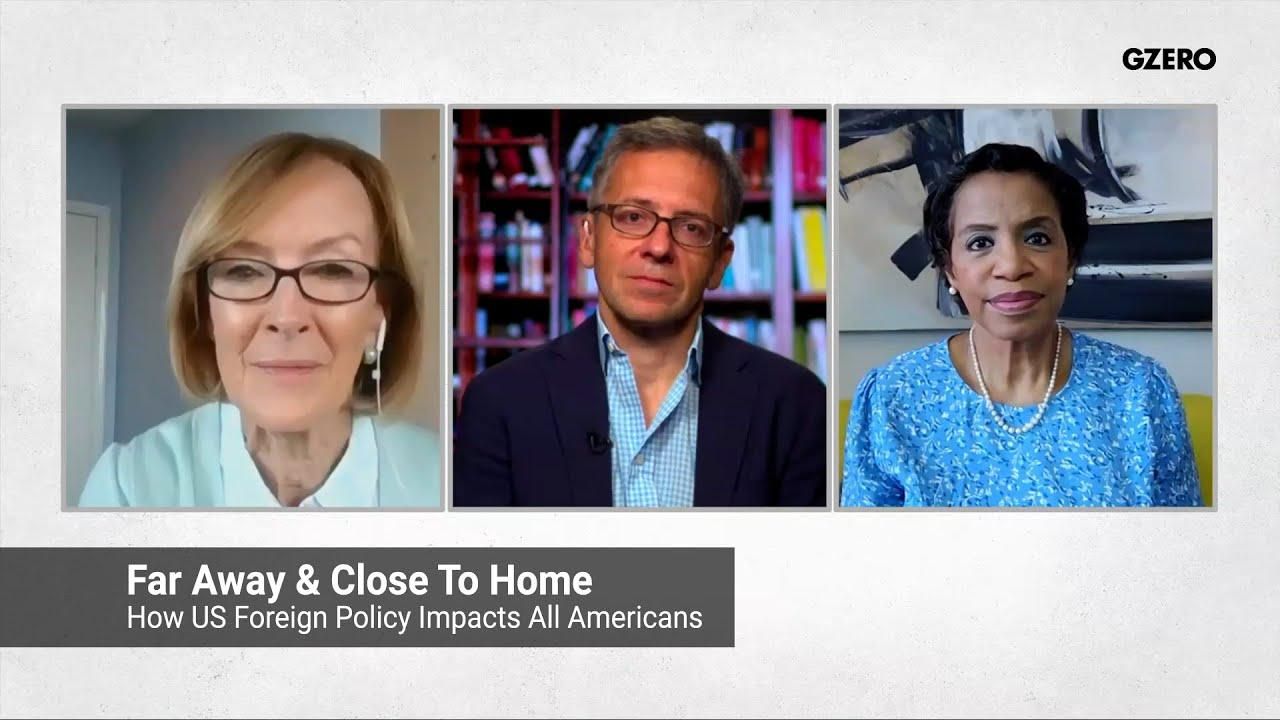
Why should Americans care about US foreign policy? Whether or not they relate to most "high-brow" diplomacy issues, they should be interested in how US foreign policy impacts their daily life via immigration, trade, America's role in the world, and even race. A few experts shared their thoughts on Tuesday, June 15, during the livestream conversation "How US Foreign Policy Impacts All Americans" presented by GZERO Media and sponsored by the Carnegie Corporation.
Former Acting US Trade Representative Mariam Sapiro said that while most American politicians view US foreign policy as mainly having to do with national security, the pandemic has taught us that they should pay equal — if not more — attention to how our national security is also determined by our economic security as a result of economic and trade policies. COVID, she explained, laid bare the consequences of losing so many jobs due to offshoring and automation — precisely in the communities that were hit the hardest by the virus.
Corporations also have a stake in US foreign policy, noted Eurasia Group and GZERO Media President Ian Bremmer. For instance, many big US companies and even celebrities reject the mainstream US political consensus that America must engage its allies against China because they still want to do a lot of business with the Chinese, whatever Beijing does on the rule of law.
One particularly thorny issue is immigration. For Cecilia Muñoz, senior advisor at New America, if the last four years have taught us anything, it's that the decisions we make around the US southern border are not driving migration to it. We can't fix immigration at the border, she added, because the problem is in the Northern Triangle countries in Central America.
But President Biden views the world differently than most Americans do — and that's a problem. Former State Department senior official and New America CEO Anne-Marie Slaughter pointed out that Biden will struggle to sell his idea that the US should once again be the global policeman, which Americans started to abandon under Obama and ultimately gave up on by voting for Trump.
The disconnect between Washington and what Americans are really concerned about extends to trade. For many Americans, said former US Rep. Donna Edwards (D-MD), the perception that America got hurt by its own trade policies is the reality that they lost their jobs due to trade. Edwards also weighed on how race affects US foreign policy, commenting that especially in the aftermath of the George Floyd protests a year ago, there must be a recognition that what happens in America sends signals to the rest of the world.